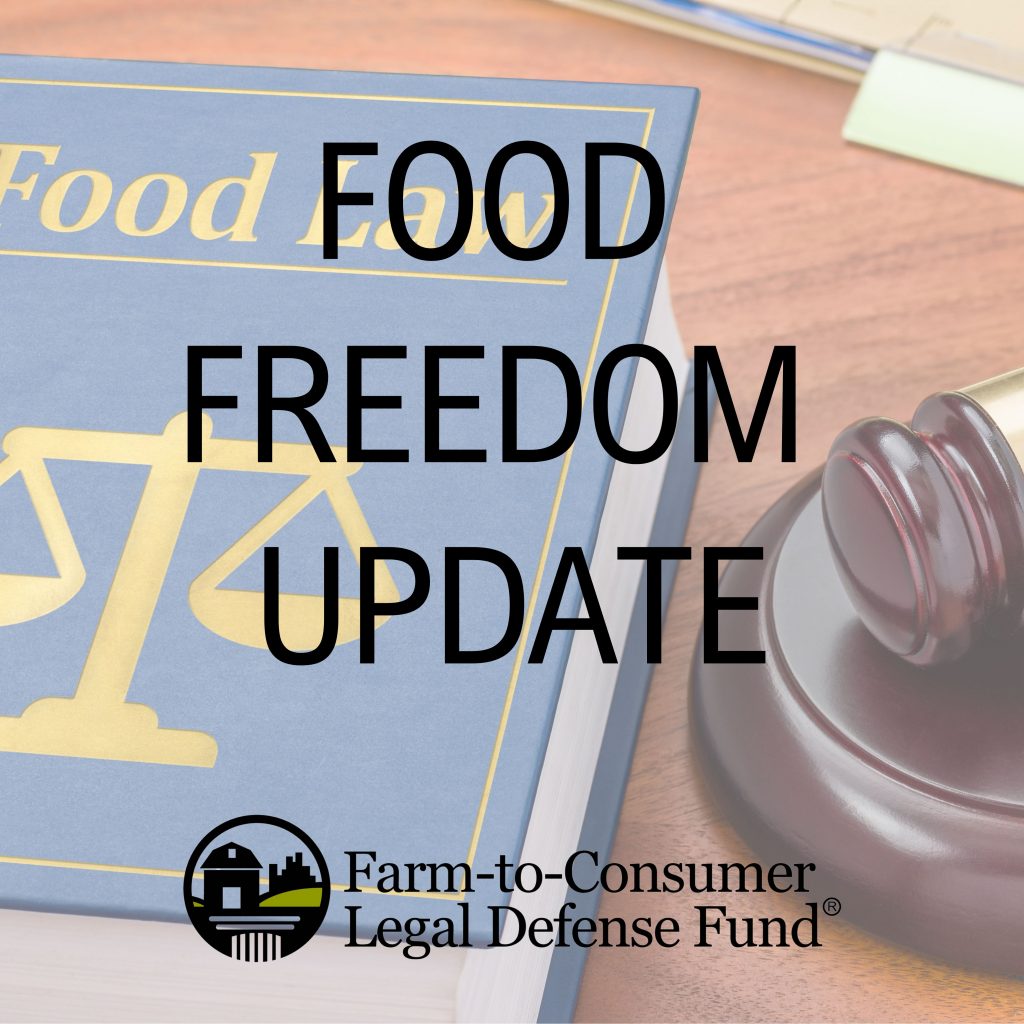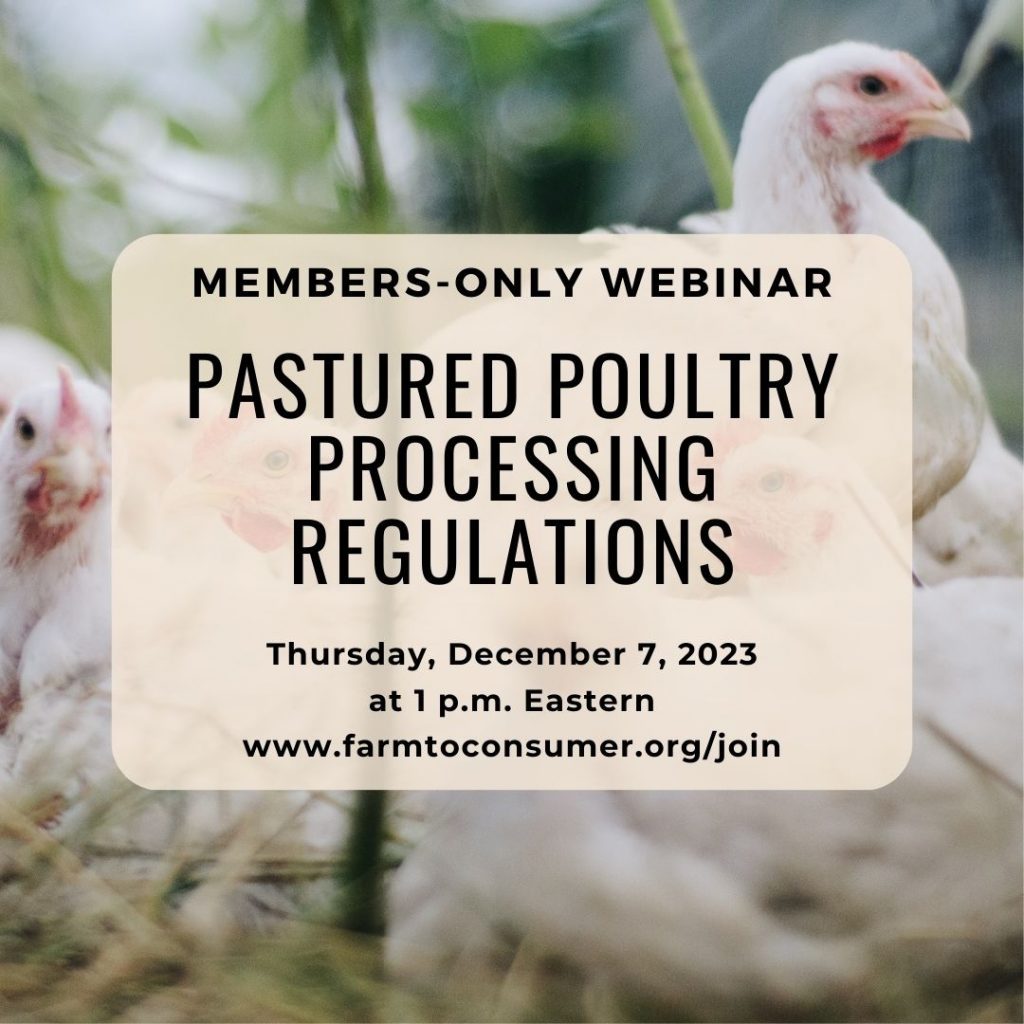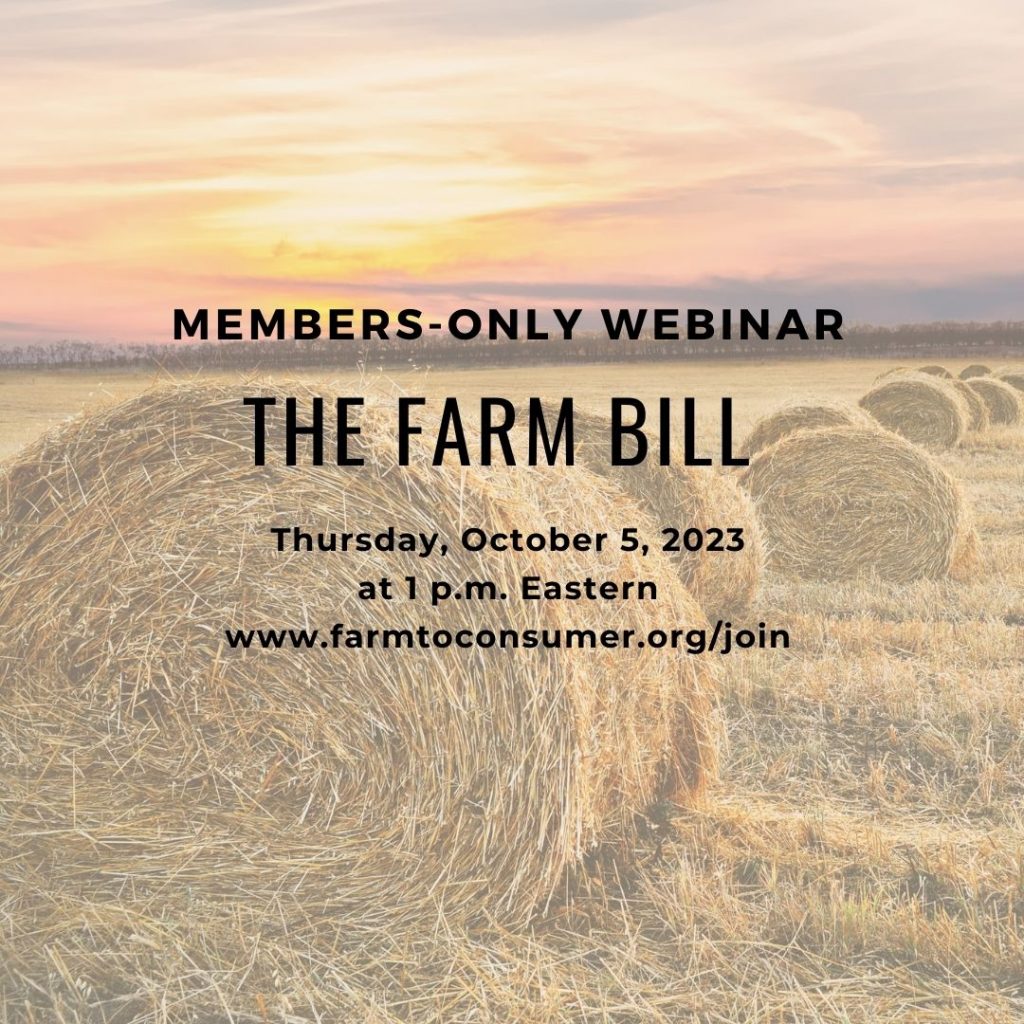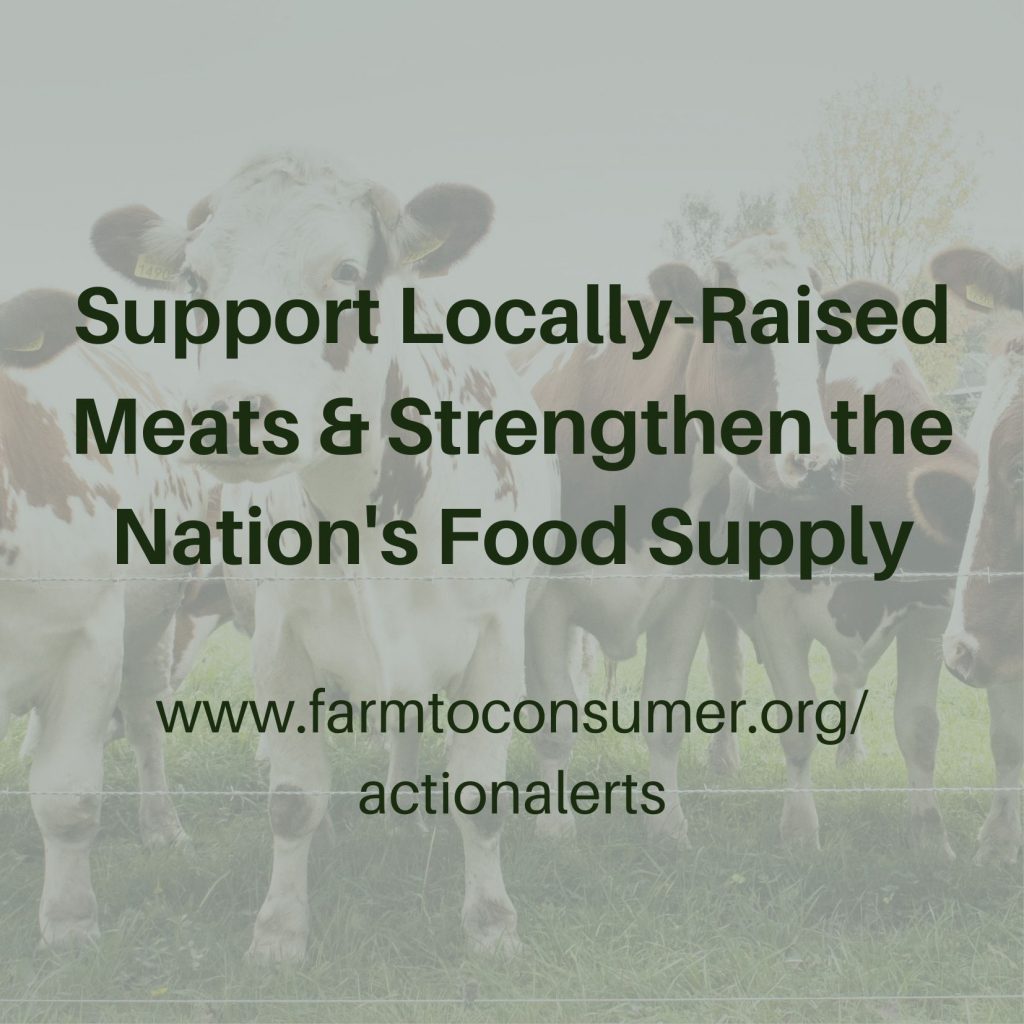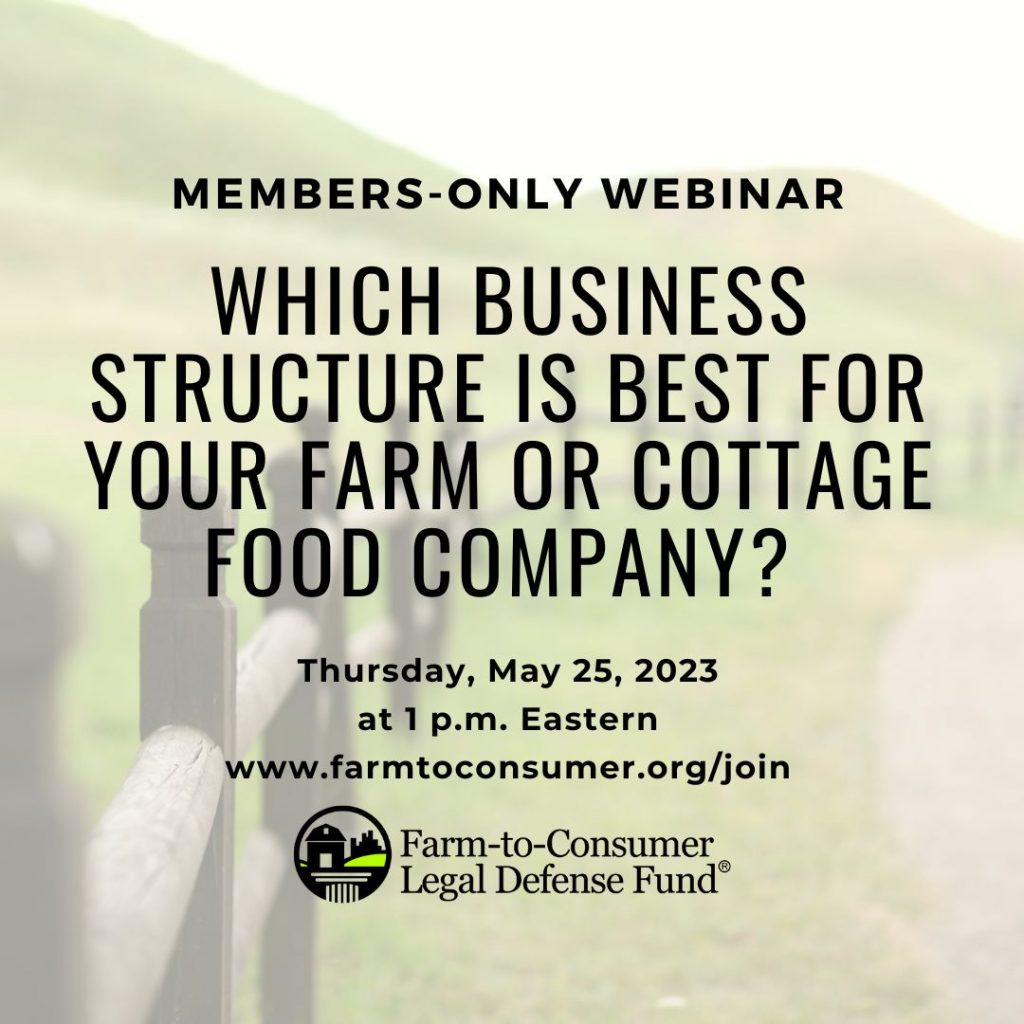Farm-to-Consumer Legal Defense Fund monitors, advises, and works to influence hundreds of food freedom bills and policies across the country that align with our mission. We have been tracking their progress and engaging with legislators and our members to lend our support to those efforts that seek to expand food freedom. We will be offering legislative […]
federal legislation
Members-Only Webinar: Pastured Poultry Processing Regulations
This Members Only webinar on December 7 features guest presenter Mike Badger from American Pastured Poultry Producers Association (APPPA). We will spend some time: Walking through the recent updates made to our online poultry map and chart that better reflect the poultry exemption regulations in each…
Members-Only Webinar: The Farm Bill
We will give an overview and high-level introduction of the Farm Bill, the multiple bills that comprise the legislation, and the process that goes into pulling it all together; Policy efforts related to the Farm Bill and the priorities we believe are of most importance; How you can get involved with advocacy efforts…
Increase the Supply of Farm-Raised Meats; Support the PRIME Act and Changes to FMIA
Small livestock farmers and custom meat processors would love to sell more meat locally. And consumers want to buy meat from local farms. The problem is federal policy makes this exchange extremely difficult. There are two bills on the table that will support the supply of farm-raised meats by improving access to local meat processing […]
Members-Only Webinar: Which Business Structure Is Best for Your Farm or Cottage Food Company?
Choosing the best business structure for a farm, cottage food company, or food hub is a good way to strengthen your business and to defend yourself if a problem with your food business arises. We’re bringing in an expert from Northeast Legal Food Hub to…
